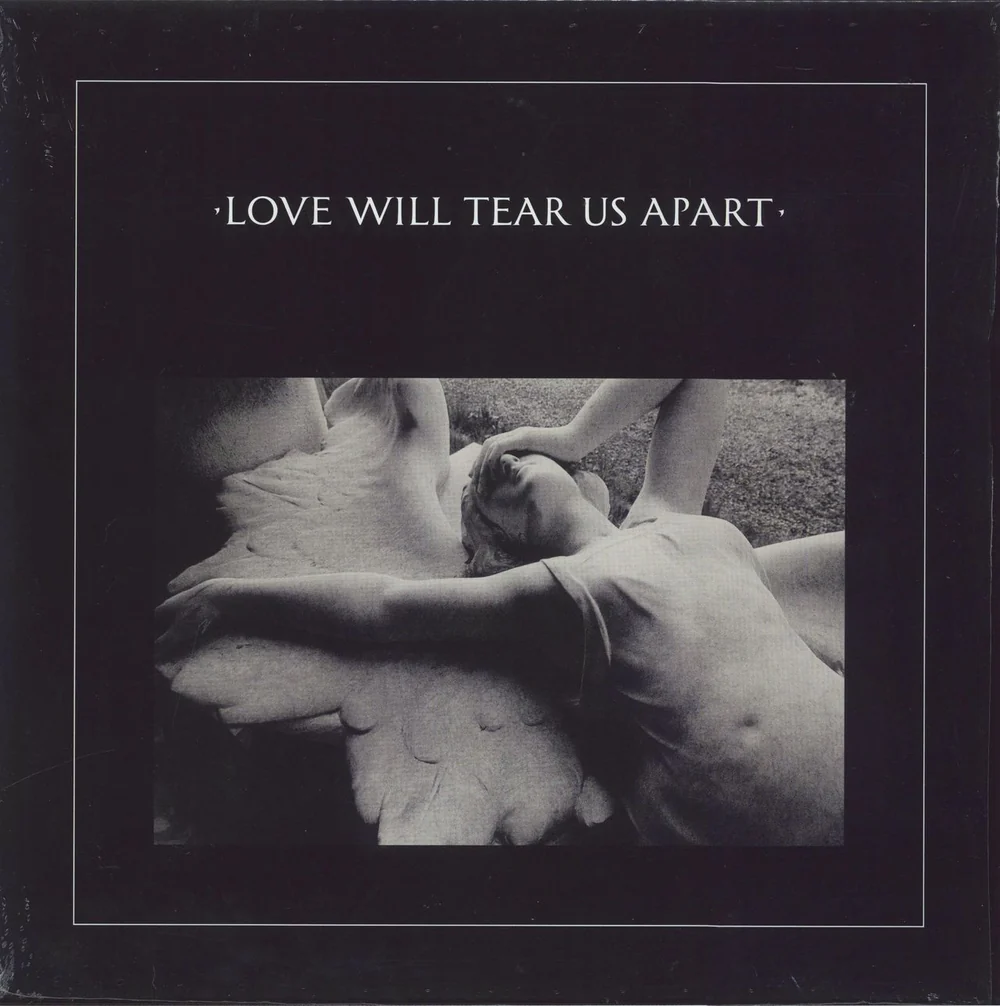Song Stories: Joy Division: Love Will Tear Us Apart
Very few pieces of music capture a persons feelings of love, despair and self destruction quite like "Love Will Tear Us Apart". Released in 1980 it was Joy Divisions final single, and was released a month after the death of front man Ian Curtis.
The song became the bands first and only chart hit, reaching number 13 in the UK Single Chart, and topped the UK Indie Chart a month later.
"Love Will Tear Us Apart" was written by Joy Division’s lead singer, Ian Curtis, whose tumultuous personal life lent a raw authenticity to his songwriting. At the time of the song’s conception, Curtis was struggling with several profound issues: a failing marriage, deteriorating mental health, and a challenging diagnosis of epilepsy. Each of these pressures seeped into his lyrics, transforming "Love Will Tear Us Apart" into a piece that feels like a public confessional, a glimpse into the pain and confusion that plagued him.
Curtis’s struggles culminated in his tragic suicide just one month before the song’s release, casting an even darker shadow over its themes of alienation, hopelessness, and the fragility of human connection. His death transformed "Love Will Tear Us Apart" from a poignant reflection on love’s challenges into a haunting premonition, making it almost prophetic.

"Love Will Tear Us Apart" is as much a love song as it is an anti-love song. Curtis’s lyrics examine the paradoxical way love, which is meant to unite, can also lead to emotional disintegration. Phrases like “Why is the bedroom so cold?” and “Do you cry out in your sleep?” evoke images of intimacy that has curdled into isolation and frustration. These lyrics echo the experience of being close to someone while feeling an insurmountable emotional distance—a sentiment that is at once universal and profoundly personal.
The chorus, “Love, love will tear us apart, again,” serves as both a lament and a refrain, reinforcing the cyclical nature of relationships. It suggests that despite our best intentions, love can often lead us to places of pain and heartbreak, over and over again. This isn't to say that love is inherently destructive; rather, Curtis points to the ways our vulnerabilities and insecurities can magnify within the bonds of a relationship, ultimately leading to estrangement.
Listening to "Love Will Tear Us Apart" is a haunting experience, especially knowing the tragic story behind it. The song encapsulates the troubled genius of Ian Curtis and the spirit of a band that was both ahead of its time and deeply reflective of its era’s angst and disillusionment. In a way, the song’s endurance serves as a tribute to Curtis’s legacy, immortalizing his voice and his message.
Ultimately, "Love Will Tear Us Apart" speaks to a simple yet profound truth: that love, in all its beauty and complexity, can sometimes be the very force that divides us. It’s a reminder that while love can be one of the most fulfilling experiences, it also has the power to expose the rawest and most vulnerable parts of ourselves. And yet, despite this knowledge, we keep coming back to it, again and again.
The song has endured for all of these years, it is still referenced as one of the greatest post punk songs of all time, and is one of the greatest songs to come out of Manchester a city with a rich musical heritage. For the surviving members of Joy Division, the song’s success was bittersweet. They went on to form New Order, a band that explored more electronic sounds but still carried some of Joy Division’s melancholic DNA. Yet, even as New Order found global success, "Love Will Tear Us Apart" remained a part of their lives and legacy.
At the end of every New Order gig, the band finish with "Love Will Tear Us Apart" even all of these years later. The band still feel emotionally attached to both the song and Joy Division.
Thank you for reading
Jack